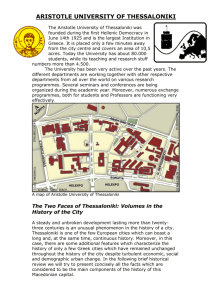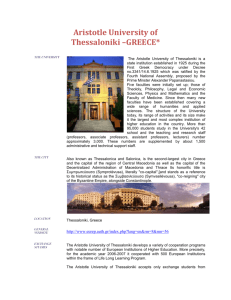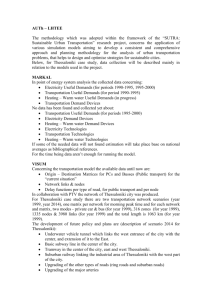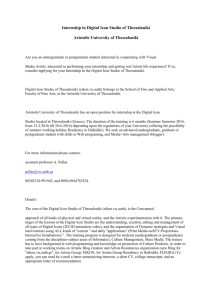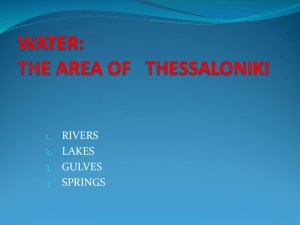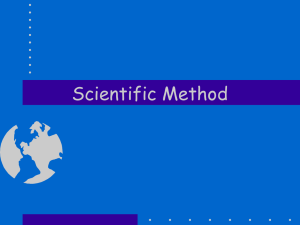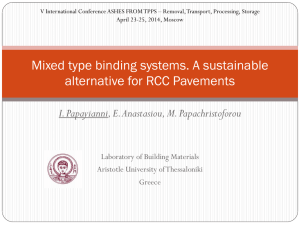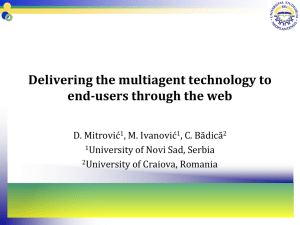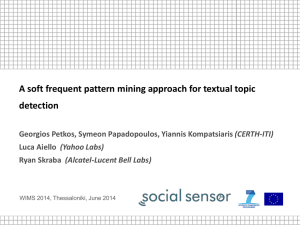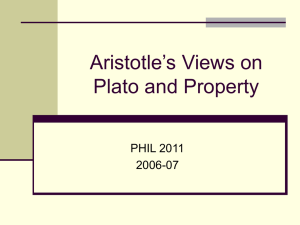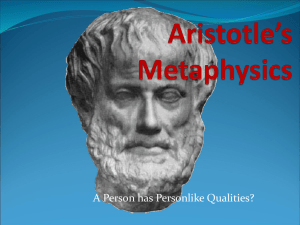Environmental Risk Assessment
advertisement
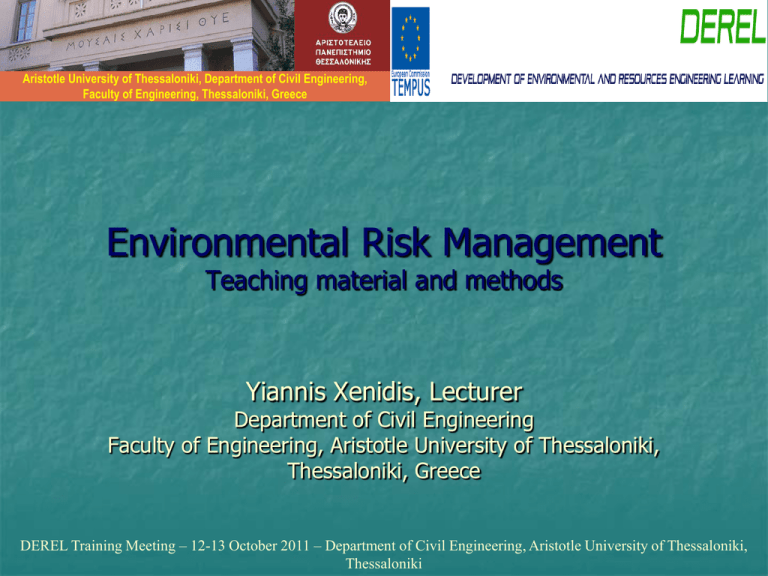
Aristotle University of Thessaloniki, Department of Civil Engineering, Faculty of Engineering, Thessaloniki, Greece Environmental Risk Management Teaching material and methods Yiannis Xenidis, Lecturer Department of Civil Engineering Faculty of Engineering, Aristotle University of Thessaloniki, Thessaloniki, Greece DEREL Training Meeting – 12-13 October 2011 – Department of Civil Engineering, Aristotle University of Thessaloniki, Thessaloniki Aristotle University of Thessaloniki, Department of Civil Engineering, Faculty of Engineering, Thessaloniki, Greece Overview of the field Risk management plan Identification Quantitative Classification Qualitative Decision making Assessment Monitoring Control Response DEREL Training Meeting – 12-13 October 2011 – Department of Civil Engineering, Aristotle University of Thessaloniki, Thessaloniki Aristotle University of Thessaloniki, Department of Civil Engineering, Faculty of Engineering, Thessaloniki, Greece Aim of the course 1. Identifying and quantitatively appreciating the uncertainty or reliability degree of the different variables and parameters under study. 2. Conceiving the significance of risk in environmental issues and problems and applying methods for its quantification. 3. Producing decision trees on various types of decision and risk analyses. 4. Solving environmental management problems by applying principles and methods of decision analysis. DEREL Training Meeting – 12-13 October 2011 – Department of Civil Engineering, Aristotle University of Thessaloniki, Thessaloniki Aristotle University of Thessaloniki, Department of Civil Engineering, Faculty of Engineering, Thessaloniki, Greece Structure of the course 1. Definitions on risk, hazard, uncertainty. 2. Content, Data, Tools and Techniques, Templates for each risk management process. 1. Risk identification: Delphi, Questionnaires, SWOT analysis, Brainstorming. 2. Qualitative Risk Assessment: HAZOP study, Probability – Impact matrix, FMEA. 3. Quantitative Risk Assessment: Sensitivity analysis, Scenario analysis, Decision trees, Analytical assessment, Monte Carlo simulation. 4. Risk Monitoring and Control: Monitoring equipment. 5. Risk response: Basics on Decision-making theory, Decision-making methods (MCDA, Decision trees, etc.) DEREL Training Meeting – 12-13 October 2011 – Department of Civil Engineering, Aristotle University of Thessaloniki, Thessaloniki Aristotle University of Thessaloniki, Department of Civil Engineering, Faculty of Engineering, Thessaloniki, Greece Proposed literature 1. Standards: PMBOK, BS_EN, ISO, National. 2. Books: http://ebookee.org/Risk-Analysis-of-Water-Pollution-by-JacquesGanoulis_948749.html http://www.springer.com/environment/pollution+and+remediati on/book/978-1-4020-4597-4 http://www.scribd.com/doc/41655498/GroundwaterContamination-Management-Contain-Risk-Assessment-andLegal-Issues-Volume-II http://ebookee.org/Urban-Water-Security-Managing-RisksUNESCO-IHP_310832.html 3. Scientific papers and presentations. DEREL Training Meeting – 12-13 October 2011 – Department of Civil Engineering, Aristotle University of Thessaloniki, Thessaloniki Aristotle University of Thessaloniki, Department of Civil Engineering, Faculty of Engineering, Thessaloniki, Greece Student’s evaluation After successfully attending the course the postgraduate student should be capable of: 1. Written exams. 2. Projects or exercises (per student) during the semester. Both needed! Students still find both the course and the exams very demanding DEREL Training Meeting – 12-13 October 2011 – Department of Civil Engineering, Aristotle University of Thessaloniki, Thessaloniki

